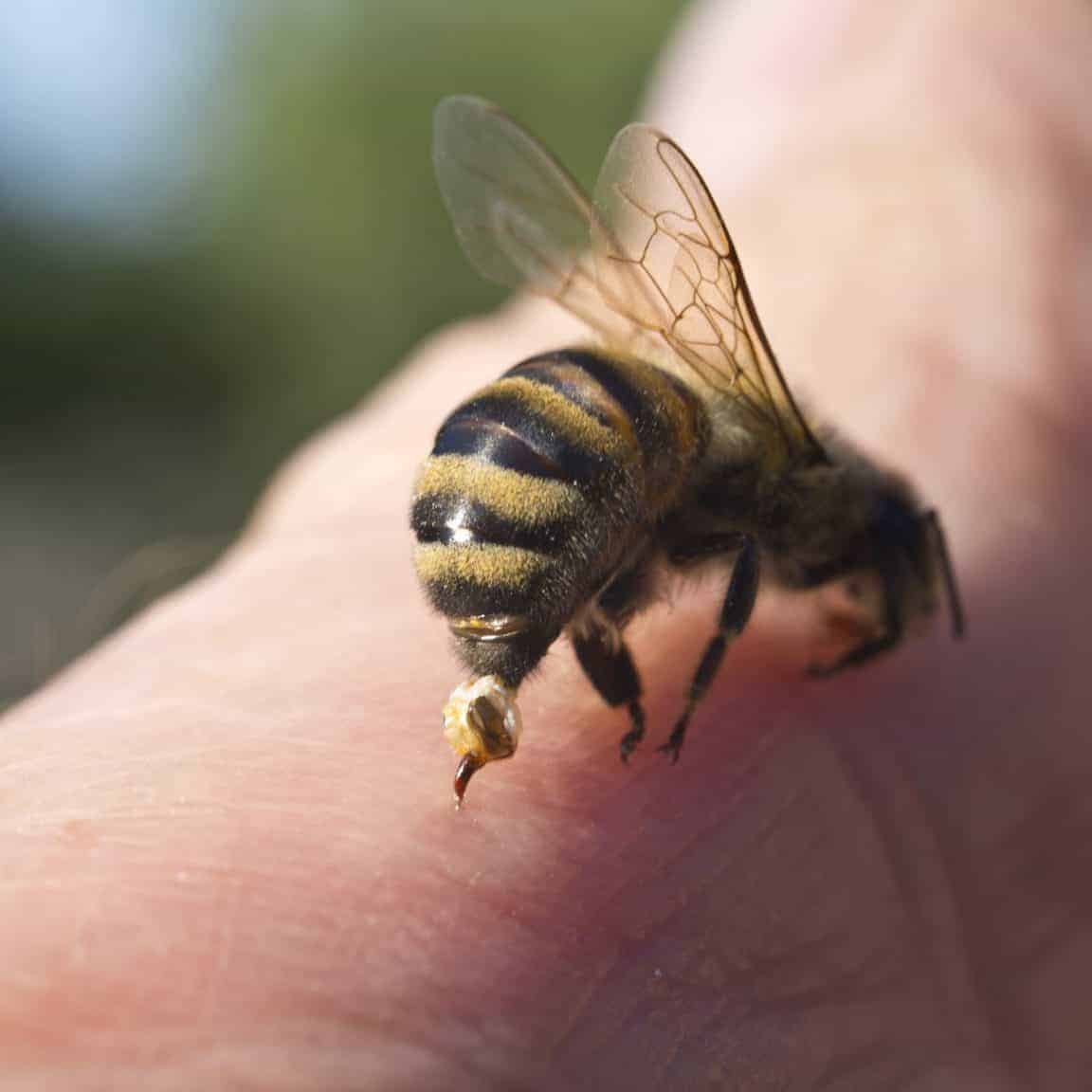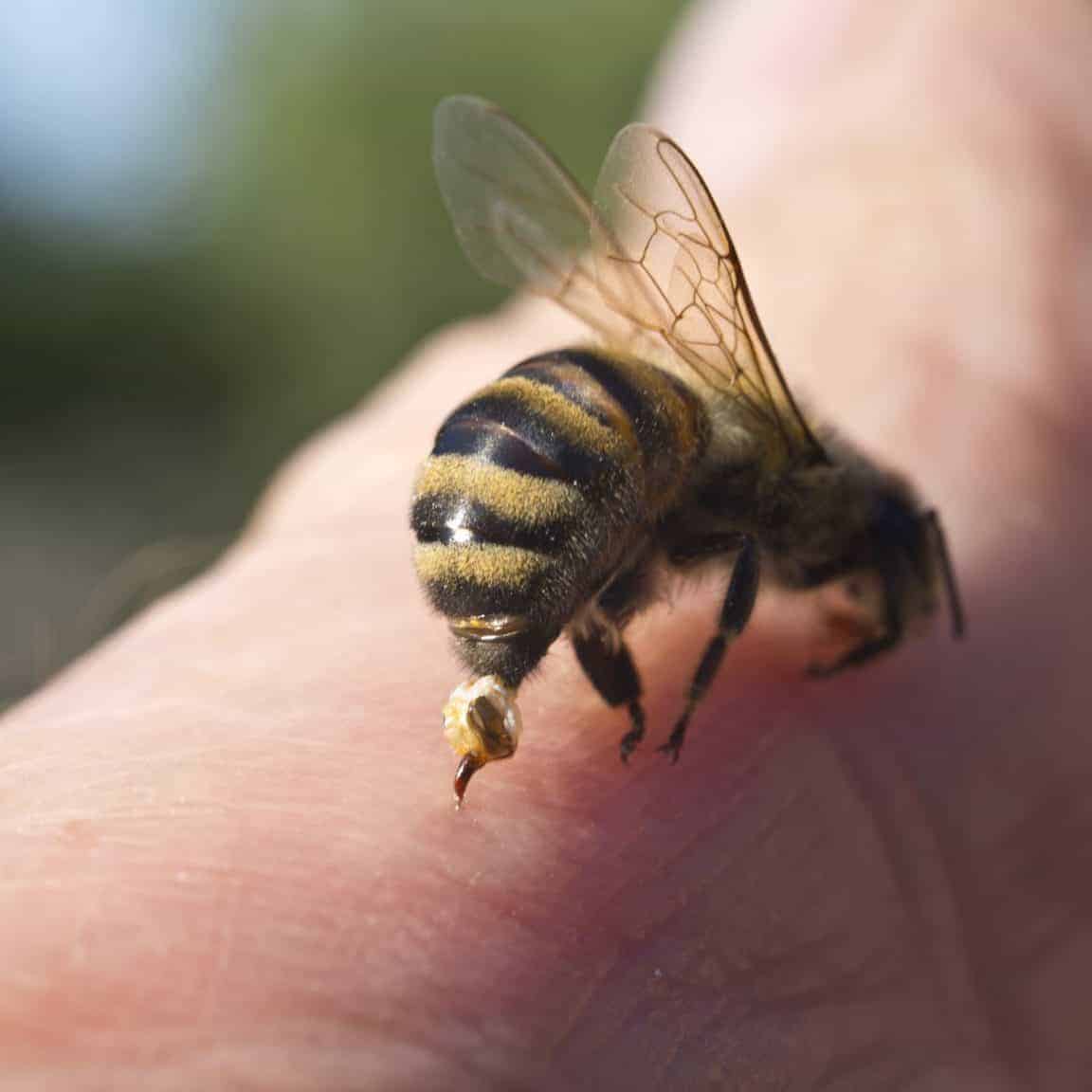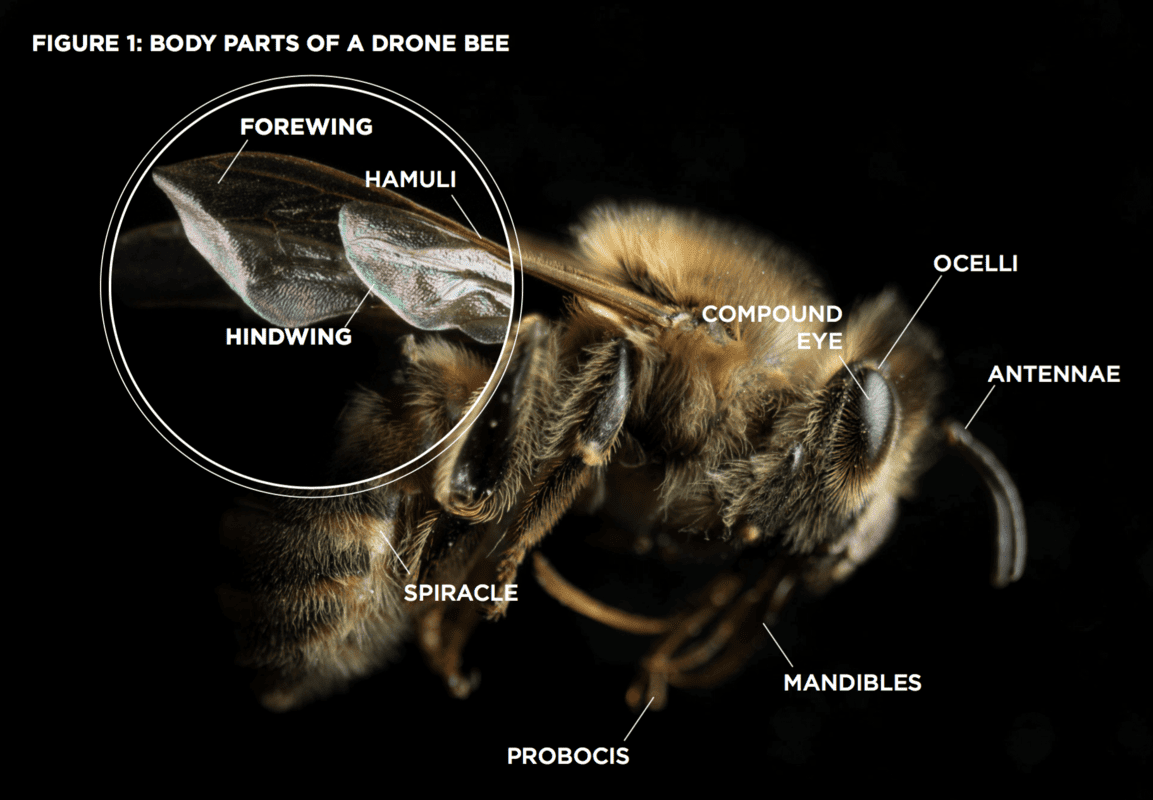Do bees bite? This is a common question for many beekeepers and prospective beekeepers. Bee behavior can vary greatly, and understanding how and why bees bite is an important part of beekeeping. In this article, we will explore the behavior of bees in beekeeping and whether they do bite. We will look at the various factors that can influence bee behavior and the different methods beekeepers use to protect themselves while working with bees. With this knowledge, you will be better equipped to handle bees and ensure their safety.
Do Honey Bees Sting?

Bees have a natural defense mechanism to protect themselves against predators and threats. They use stingers to inject a venomous substance into their victim. While honeybees have stingers, they will only sting when provoked.
Do Bees Have Stingers?
Yes, honeybees have stingers. They are located at the end of their abdomens and can be used in self-defense. When a honeybee stings, they release a venomous substance that can be painful and cause inflammation.
Can Honeybees Sting?
Yes, honeybees can sting. They use their stingers in self-defense when they feel threatened or provoked. It is important to note that after a honeybee stings, they will die since their stinger is barbed and gets stuck in the victim’s skin.
Do Bees Bite People?

Bees are generally not known to bite people, but they do have stingers which they can use to defend themselves. Do honeybees have stingers? Yes they do – a honeybee can sting multiple times, but the stinger is barbed and will remain in the skin of the victim.
Do Honey Bees Sting You?
Honey bees will typically only sting if they feel threatened or if their hive is disturbed. If a beekeeper is not careful, they can still be stung by a honeybee. The beekeeper should wear protective clothing when handling the bees and should be aware of the signs that a bee is preparing to sting.
Do Bees Leave their Stinger in You?
Yes, a honeybee’s stinger is barbed and will remain in the skin of the victim. This can be very painful and can cause swelling and redness at the site of the sting. The bee’s stinger contains a venom which can cause an allergic reaction in some people.
Do Bees Bite You?
Bees do not typically bite people, but they can sometimes pinch. This is usually done by the queen bee, who will pinch the beekeeper if she is disturbed. The beekeeper should be aware of the signs that the queen bee is preparing to pinch and take precautions to avoid being bitten.
Do Bees Always Leave a Stinger?
No, not all bees will leave a stinger. Some bees, like bumblebees and carpenter bees, do not have barbed stingers and so they can sting more than once without leaving a stinger.
Do Bees Leave Stingers in You?
Yes, honeybees have barbed stingers which will remain in the skin of the victim. The bee’s stinger contains a venom which can cause an allergic reaction in some people, so it is important to seek medical attention if you have been stung.
Why Do Bees Sting?
Bees sting as a defensive mechanism. When a bee feels threatened, it will sting to protect itself and the hive. Worker bees have barbed stingers that can puncture skin, and they will leave their stinger and venom sac in the victim.
Does a Bee Leave its Sting in You?
Yes, honey bees and most other species of bees leave their stingers in the victim, along with a venom sac. This is because the stinger is barbed and, when it enters the skin, it causes the stinger and venom sac to detach from the bee’s body.
Do Bees Bite?
No, bees do not bite. Instead, they use their stingers to inject venom into their victims. While bee bites do not occur, some species of wasps and hornets do bite.
Do Bees Sting Other Bees?
Yes, bees can sting each other, but it is rare for them to do so. Bees are social insects and have strict hierarchies in their colonies. If a bee breaks the rules of the hive, other bees may sting it as punishment.
Can Bees Sting Other Bees?
Yes, bees can sting other bees, but it is rare. Usually, bees will only sting other bees if they perceive a threat to the hive.
Barbed Stinger of a Bee
The stinger of a honey bee is barbed, meaning that it will detach from the bee’s body when it enters the skin of its victim. This is why a bee can only sting once, as its stinger and venom sac are left behind in the victim. This is why it is important to understand do honey bees have a stinger, as it can cause a significant amount of pain and swelling.
Frequently Asked Questions
What is the difference between bee stings and bee bites?
- Bee Sting is an injection of venom from a bee’s stinger. It is in defense of the bee hive and is a quick and effective way for the bee to protect itself and the hive.
- Bee Bite is a bite that a bee inflicts with its mandibles. This is generally done when the bee feels threatened or is trying to defend the hive, but can also be done in order to gather food or to feed larvae. Bee bites are not as effective as stings, but can still cause pain and swelling.
Bee stings are more dangerous than bee bites, as the venom from the sting can cause a severe allergic reaction and even death in some cases. Bee bites can cause pain and swelling, but are not as serious as bee stings. It is important to note that bees do not typically bite humans unless they feel threatened, so it is important to remain calm and avoid swatting at them if possible.
What is the Best Way to Protect Oneself from Bee Bites?
The best way to prevent bee stings is to wear appropriate protective clothing when around bees. This includes a beekeeping suit, gloves, and a hat with a veil. Additionally, avoid wearing perfume, brightly colored clothing, or anything that may attract the attention of a bee. Avoid swatting at bees and remain still if one lands on you. If you must move, do so slowly and calmly. It is also important to keep bee hives away from areas with a lot of human activity.
What should I do if I am Bitten by a Bee?
If you are stung by a bee, it is important to act quickly. Remove the stinger by scraping it out with a fingernail or a blunt object such as a credit card. Wash the area with soap and water and apply a cold compress to reduce swelling. If you experience an allergic reaction, seek medical attention immediately.
How do bees communicate with each other?
Bees communicate with each other using a combination of pheromones and complex dances. Bees produce pheromones with their bodies as a way to communicate with other bees. These pheromones act as a signal to alert other bees of danger, food sources, and other important information. Bees also communicate with each other through a complex dance known as the waggle dance. Through this dance, bees are able to share information about the location of food, water, and other resources.
- Pheromones: Bees produce pheromones with their bodies as a way to communicate with other bees. These pheromones act as a signal to alert other bees of danger, food sources, and other important information.
- Waggle Dance: Bees communicate with each other through a complex dance known as the waggle dance. Through this dance, bees are able to share information about the location of food, water, and other resources.
What are the most common causes of bee bites?
- Defense: Bees will sting to protect themselves, their hive, and their colony.
- Aggression: Bees may become aggressive when they are disturbed or feel threatened.
- Interference: Bees may sting when they feel their home or hive is being interfered with.
- Swarming: Swarming, or the process of a bee colony leaving the hive, can cause bees to become defensive and sting.
- Perfume: Strong scents, such as perfume, can irritate bees and make them aggressive.
- Sweat: Sweat can also irritate bees and make them more likely to sting.
- Bright Colors: Bees may be attracted to bright colors and be more likely to sting.
Conclusion
Bees rarely bite humans under normal circumstances, and instead rely on other defensive behaviors to protect their hive. Beekeepers must wear protective clothing and take other safety precautions when handling their hives to avoid being stung. Beekeeping can be a rewarding and fascinating hobby, but one should always take caution when dealing with bees.
